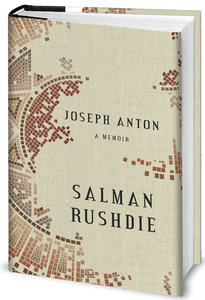Take a pinch of Conrad, a soupçon of Chekhov, shake vigorously and you get Rushdie. Not quite, but their forenames were the beards behind which Salman Rushdie hid during the nine-year fatwa against him. 1989 was a low point in Ayatollah Khomeini’s popularity so he used Rushdie’s Satanic Verses as a convenient rallying point for the fundamentalist Muslims around the world. Rushdie might have hid his face all these years but no death sentence was able to make him lay down his pen or still his voice. During this period of confinement in several safe houses throughout United Kingdom, he penned — at his young son’s request– Haroun and the Sea of Stories as well as The Moor’s Last Sigh, numerous essays, reviews and public letters. He also became somewhat of a gad-fly trying to goad Western nations to stop dancing cheek-to-cheek with fundamentalist leaders, while condemning them behind their backs.
These were very difficult times for Rushdie, his successive wives (marital discord was a constant in his life) and two sons. They were also difficult times for his close friends who took care of the logistics of finding safe housing, arranging for medical treatment, providing good cheer and keeping their mouths tightly shut, with great loyalty. For the community of writers with integrity, it was a time to put their money where their pens were and this they did, with a few exceptions. One such exception was coyly referred to by Rushdie as Maggie or Peggy. When asked to publicly support her colleague, she exclaimed, “But what can I say?” — to which the rejoinder was: “Use your imagination.”
This 636-page book has been labelled a memoir –even though it reads like a suspense novel – and very rightly so. Rushdie traces his youth in India, his turbulent relationship with his alcoholic father, his loneliness and frustration as a student in England, his quick success as a copywriter, his meteoric rise up the Booker Prize ladder for Midnight’s Children (three awards) and his hard fall as a man condemned to death by people who had never even read The Satanic Verses. What Rushdie wishes to make crystal clear is that he is definitely not against Muslims, having in fact been brought up as a secular Muslim with deep respect for Islamic culture and literature. What he cannot abide is the irrationality of religion in general. He also pointedly states that he is deeply ashamed of having ever claimed to have returned to the Islamic fold which was nothing but a desperate lie to try to get the fatwa lifted.
Rushdie, alias Joe, to the British secret service charged with his round-the-clock protection, also indulges in some introspection. He admits that his overwhelming desire to be loved was responsible for most of his mistakes in his relationships and professional life. He is also humble enough to admit that he tends to be arrogant, especially when attacked, but that his relationship with his third wife Elizabeth actually made him a gentler human being…until he destroyed his marriage by taking up with Padma Lakshmi. Rushdie, by the way, is not above some ungentlemanly score-settling, with Marianne Wiggins, his second wife, and Padma Lakshmi, his fourth wife. He admits to some flaws in his work, such as in The Jaguar Smile, a short account of his visit to Nicaragua.
From a literary point of view Joseph Anton is not an example of Rushdie at the top of his game, but, by far it is his most honest book. A book written in the third person with no mention of the character’s name sometimes forces the reader to step back a few lines to find out the antecedent. Also, like some of Rushdie’s full length prose, it could have benefitted from a sharp pair of scissors wielded by a good friend not afraid of authorial sensitivities. The tone is uneven, the structure at times chaotic and the details all too abundant and somewhat repetitious; but these are very small quibbles in a fascinating story belonging to the realm of magic realism. We should not stigmatize Rushdie for his all too human desire for a high profile after all these years of invisibility, nor should we stereotype him as a writer whose hair is never out of place.








